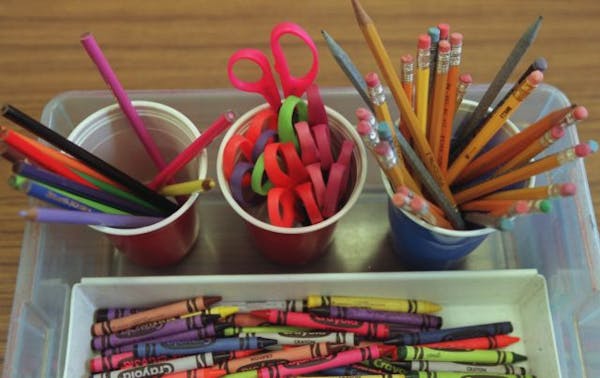Counterpoint
As someone who attended the Minneapolis public schools for 13 years, who teaches for them now, and who is a proud parent of two MPS students, it truly saddens me that Lynnell Mickelsen's latest article ("Another teachers contract, another vote for the status quo," April 17) brings more negative attention not only to the profession of teaching but to the schools.
You would never guess that enrollment in Minneapolis is up and that we are opening schools for the first time in recent history.
I applaud Mickelsen for her passion when it comes to education. I wonder, however, how much she truly knows about the profession and about the challenges teachers face every day.
She attempts to connect the achievement gap with the lack of reform in the way teachers are hired and fired, stating that the teacher is the biggest in-school factor in student achievement. This is true -- but home factors and socioeconomic status are the biggest factors overall in student achievement.
Some 20 percent of children now live in poverty. Students whose physical and emotional needs are not being met struggle academically and behaviorally in school.
This is not rocket science; it is common sense. Your mind is not on test-taking if you are sleep-deprived, or homeless, or are a victim of or witness to drug and physical abuse, or are dealing with anger or other emotional issues as a result.
I have seen all that as a teacher. Attacking teachers and ignoring the effects of poverty will only exacerbate the problem.
Mickelsen makes a case for charter schools, stating that some public charter schools in Minneapolis and the Twin Cities are "making great gains with the same demographics of kids who are failing en masse in MPS classrooms."
The fact is the Twin Cities area's 30,000 charter-school students score 7.5 percentage points lower on math testing and 4.4 percent lower on reading tests than do students at traditional public schools, according to a report from the University of Minnesota Law School's Institute on Race and Poverty.
Charters also have the ability to expel students who have severe behavior disorders. Traditional schools in Minneapolis educate all who walk through the door -- not just the ones who do well on tests.
Mickelsen believes that teachers should be hired and fired based on evaluations. The problem with this is that evaluations are subjective, because they are done by people, who are subjective by nature. Can anyone show me what a good teacher looks like vs. a bad teacher?
Teaching is a craft and an art. The ability to motivate, entertain, engage and excite kids to help them learn cannot be evaluated objectively. A group of us teachers were shown a video of a math lesson at a recent staff meeting.
We were then asked to score the teacher in the video based on the standards of effective instruction. We shared our results. In my group alone, there was disagreement. One teacher thought there was too much direct instruction; another thought it was needed because it was the first day of a unit.
I had a different view than both. The point is, our evaluations will vary depending on the evaluator.
Thirty-five percent of our evaluations will be based on student growth. The problem with this is that we are assigned students randomly.
Teachers cannot recruit kids. We can try to even out the number of English-language learners and special-education students in each class but still cannot make it fair to all teachers.
Some teachers will have a disproportionate number of students who have greater life challenges. We don't know in advance which teachers will face this.
I am all for evaluations that are used as tools to help us improve. But to use them as a criterion for layoffs should not be the intention.
Mickelsen's voice is needed in this debate, but she, like many other "reformers," does not understand the complexity of teaching and the many variables that affect learning.
--------------
David Boucher is a fourth-year teacher at Ramsey Fine Arts School.
Store guns safely and save lives

Why we protested at the University of Minnesota


